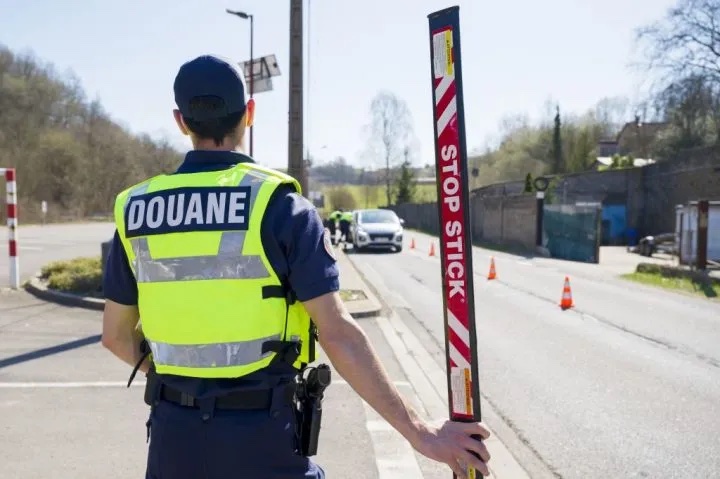Europe is on a state of high alert after Friday’s Islamist attack in Moscow that left 137 concertgoers dead. France has raised its security alert to the highest level, and more soldiers will be deployed to patrol the streets and stand guard outside “sensitive sites” including churches, synagogues and schools.
President Emmanuel Macron said in a statement on Sunday that the group that carried out the Moscow attack, Islamic State — Khorasan Province (IS-K), an Afghan affiliate of the Islamic State, had attempted to commit “several” atrocities on French soil in recent months, including an attack in the city of Strasbourg.
Denmark has also stepped up security, as has Italy. At a national security council meeting in Rome on Monday it was agreed to increase the police presence around sites of worship ahead of the Easter weekend.
Like France, Germany has reportedly been the target of previous terrorist plots by IS-K, including an attack against Cologne Cathedral over Christmas. At the beginning of last week, German police arrested two Afghans, allegedly members of IS-K, who are suspected of planning an attack against the Swedish parliament.
How did the two Afghans enter Germany? The German authorities have yet to release any details but the pair may have come across last year, among the 380,000 people who arrived in Europe illegally. Syria and Afghanistan provided the highest number of what the EU border agency describes as “irregular crossings.” This trend has continued in 2024. Nearly 10,000 illegal immigrants reached Europe through the eastern Mediterranean in the first two months of this year, a 117 percent increase on the same period last year. Most were Afghans, Syrians and Egyptians.
It would be nice to think — as the Pope does — that they all have arrived with love in their hearts, “gifts,” as the Pontiff said in an address last September. But clearly not all have.
Nine years after an Islamic State terror cell massacred 130 people in Paris, an atrocity that bore grim similarities to the Moscow attack, the identity of two of the terrorists remains unclear. All that is known about them is they entered Europe posing as Syrian migrants. Authorities on the Greek island of Leros revealed that one of the men, who called himself in false papers “Ahmad al-Mohammad,” arrived in Leros on October 3, 2015.
An official told the BBC that he had his suspicions about the man, and “would have highlighted his concerns to an intelligence officer, had one been there.” In response to the claim, the Leros border agency said they lacked the resources to cope with the influx of arrivals after Angela Merkel had thrown open Europe’s borders two months earlier.
In a report published in April 2016, Frontex, the EU’s border agency stated the Paris attack “clearly demonstrated that irregular migratory flows could be used by terrorists to enter the EU.” It continued: “As the vast majority of migrants arrive undocumented, screening activities are essential to properly verify their declaration of nationality.”
The head of Frontex at the time was the Frenchman Fabrice Leggeri. Over the next few years he continued to issue warnings about the terrorist threat, particularly after the American withdrawal from Afghanistan in the summer of 2021. In an interview in September that year he forecast that the Afghan crisis would likely lead to a surge in migration towards Europe and the possibility that Islamist groups would look to exploit this situation.
The following year Leggeri was forced out of his post after allegations that he connived with the Greek government to push back migrant boats. He has subsequently joined Marine Le Pen’s National Rally party and will represent them in June’s European elections. In recent interviews he says his position in Frontex became untenable because Brussels is essentially pro-migrant.
Four years ago, the number of illegal migrants plummeted to the lowest levels since figures began in 2009. In April 2020 there was a 85 percent drop in irregular crossings, attributable to the Covid pandemic and the fact that 17 countries in the Schengen Area had reintroduced border controls.
It was a largely pointless exercise as the virus was already spreading through Europe. Nonetheless, it was a political gesture to try and reassure a nervous population.
Now there is a new threat facing Europe, one that is also of great concern to people, but will border controls be tightened? It would be futile. The Islamist threat is already here. At the start of last year security experts and intelligence services were warning about the growing danger posed by Islamist terror groups, and how they might use the migrant route to send their death squads into Europe. And what was the upshot? The most migrants entered Europe illegally since 2016.
Covid has evolved and grown weaker since it first swept through Europe four year ago. Islamism has also evolved but it’s showing no sign of weakening. Quite the opposite. It’s strengthening, and also mutating. Hamas, al-Qaeda and Islamic State have all threatened Europe in recent months: three strains of the same deadly Islamist virus.
This article was originally published on The Spectator’s UK website.


























Leave a Reply